Tesla Investor Day roundup
The long awaited Investor Day, the very first in Tesla’s history, came and went. The nearly 4-hour long event left a lot of people cold and disappointed because despite the teasers of the biggest announcement in Tesla’s history, the company kept the details of its future EV portfolio secret. There was no surprise unveiling, nor very detailed plans.
If you didn’t watch the live stream because it was in the middle of the night for you, or you simply don’t have 4 hours to spare watching Elon Musk elaborating on his plans - don’t worry. We put all the facts together for you in a nice and easy to digest roundup, so you can make up your own mind about it.
First of all Tesla, and Elon Musk, clearly are not happy with the way we produce electricity on Earth. According to the presentation over 80% of electricity comes from fossil fuels. Elon believes we can change that without any drastic sacrifices and he believes Earth can support a much bigger population than 8 billion people.

Elon’s argument is that we only need 30 TW of renewable power combined with 240 TW of battery storage to run the world. The world is currently using about 60 TW of power, but he believes the reason is huge inefficiencies of combustion technology - mostly through heat. He goes on to explain that we “only” need to invest $10 trillion to change our energy production to a fully sustainable model.
That is a good argument, walking away from combustion technology will reduce more than just emissions. Making our electricity production and consumption more efficient is an ultimate goal. $10 trillion investment sounds like a ton of money but it only represents 10% of global GDP from 2022. The presentation makes it sound easy and possible but Elon forgot to mention global politics, geopolitical issues and our inability as humans to look far ahead in time to realize potential benefits.

Tesla has a plan in place to get rid of fossil fuels and it presented a nice and simple graphic to explain how it intends to do it. Renewable energy can cut fossil fuel use by 35%, electric cars can cut 21% and heat pumps can reduce our reliance on fossil fuels by 22%. Interestingly, Elon Musk says hydrogen can help cut another 17% and he even imagines boats and airplanes powered by renewable sources or sustainable fuels to cut another 5% of fossil fuel use. That's 100% fossil fuel use replaced with other energy sources. Nice and simple.
Jumping back to electric cars, Tesla sees the future global fleet as fully electric and mostly autonomous. The company put up another slide where it shows the numbers of cars that we need to replace with EVs to achieve our goals of zero emissions and sustainability. We will need 115 TWh of vehicle batteries and 4TW of electricity from solar and wind to power all those EVs and we’ll need $7 trillion of manufacturing investment.

Tesla is positioning itself as an expert on heat pumps, the company sees them as a solution to our energy problems. It is surprising to see the company engaging itself so far out of the automotive field and going on to a world saving mission. It is good on one hand to see Tesla taking partial responsibility for emissions but it sounds a lot like a distraction from the company's primary goals. Maybe Tesla has a point and it’s time for automotive companies to take more responsibility for the environment?
Moving on to the transition to sustainable energy. Tesla believes there are more than enough resources in the world to afford a total transition to battery power and renewable energy production. Elon points out that the full transition would use less than 30% of global nickel resources and reminds us that Earth has more iron than we can ever use.
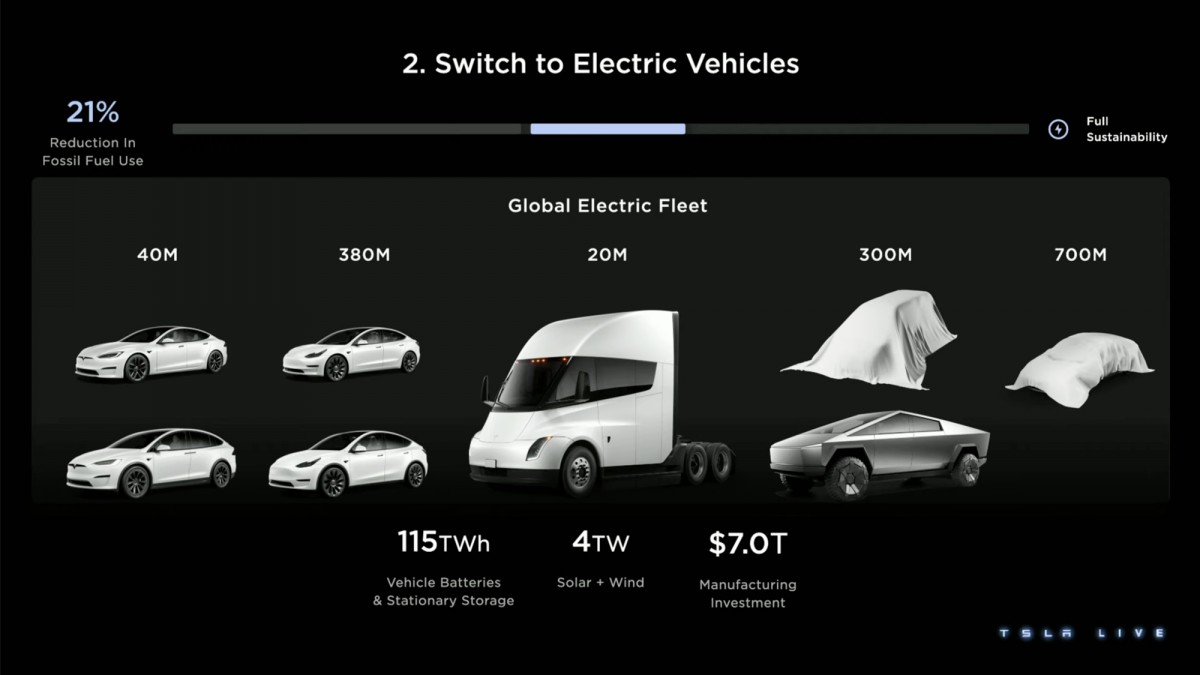
With the Earth saving plan presented, the focus shifted to Cybertruck and production issues. The decision to make it out of stainless steel is proving to be the main issue but the company claims it has all the kinks worked out and the Cybertruck is still on track to start production this year. Mass production will only begin in 2024 though.
Tesla is working on reducing the manufacturing complexity and it is changing the way the assembly process is carried out currently. The company hopes to slash its production costs by half once the new models are introduced some time in the future. Here’s the comparison of the current and future assembly processes:
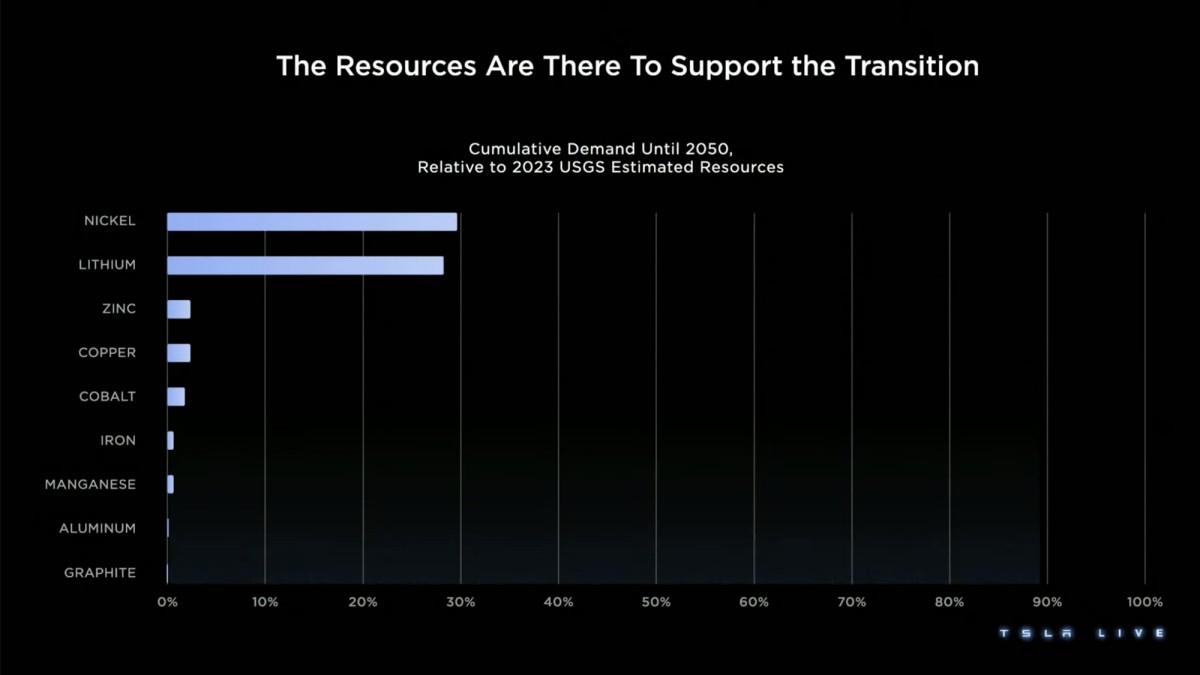
Next up were the new and improved powertrains. Tesla claims its next generation powertrains will use zero rare earth materials, 75% less carbide and will be able to use any battery chemistry. They will require far less space to manufacture - nearly half as much - and will save at least $1,000 in costs per unit. Savings per unit are great and all, but being able to make them in half as much space is likely a bigger deal.
Next up was software and FSD took the center stage. Tesla pushed out yet another software update to reduce tension in seatbelts - apparently it will reduce the number of injuries. We’ve missed that one - was Tesla hurting people while typing to protect them? Apparently so.
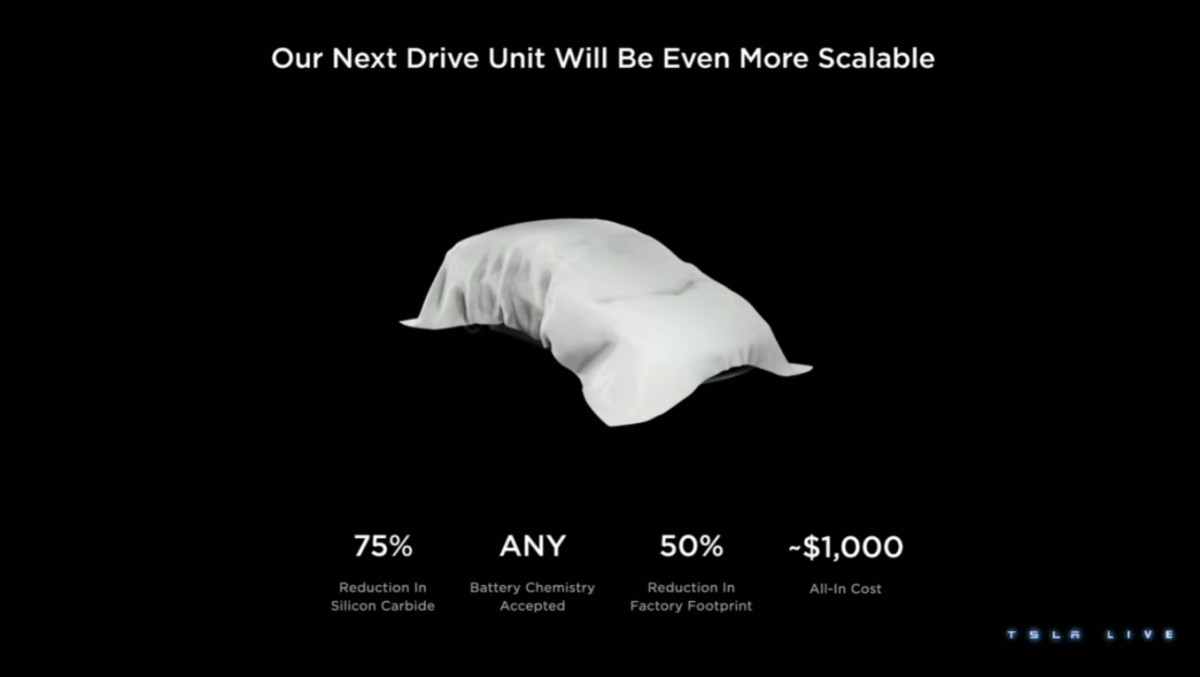
Surprisingly, the FSD presentation was painfully short and it only talked about the constant work and progress that is being made and immense resources that are required for all the data processing. Apparently Tesla worked out that FSD cars travel on average 3.2 million miles before a collision occurs - it all depends how you present the data.
Next there were robots. Elon is not giving up on his dream of giving us bi-pedal droids and doing it as soon as possible. The company has a vision of robots making other robots (where have we seen this one before?) and it wants them to outnumber people. Nothing to worry about here, then.
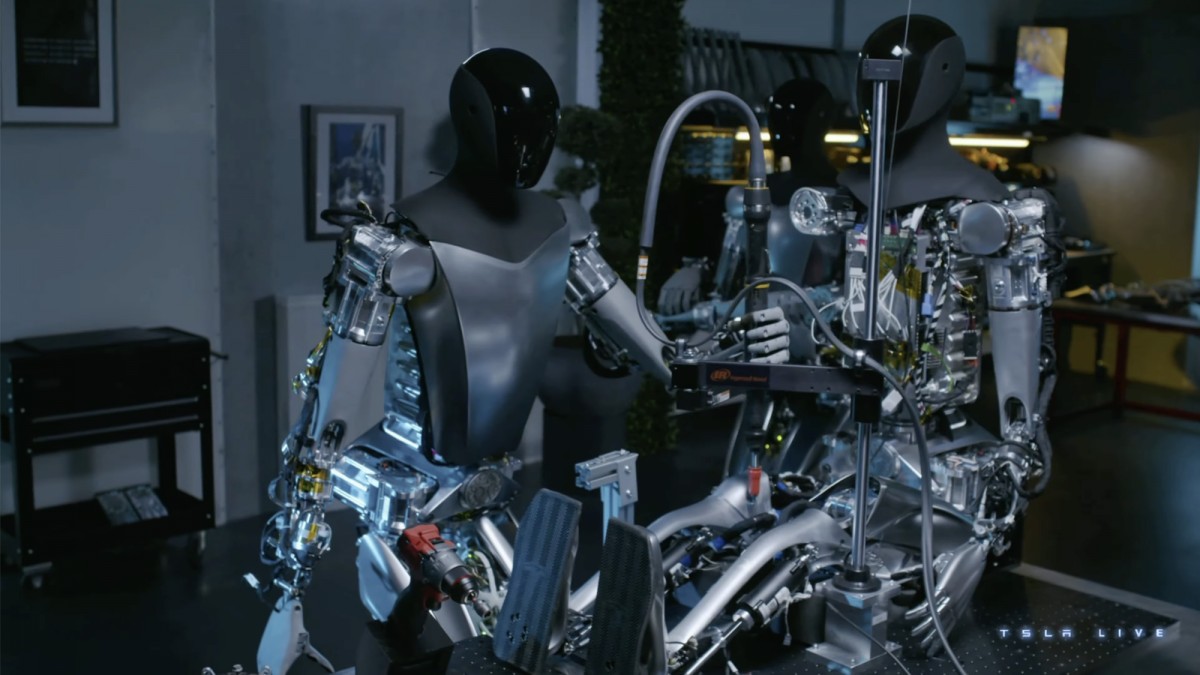
Finally we have some more details about the Magic Dock at the latest Supercharger stalls. It actually is very clever as it automatically recognizes whether it’s a Tesla or non-Tesla vehicle that needs a charge and the customer pulls the charging cable with the correct plug - simple and effective. The 4th generation Superchargers with longer cables are first t be deployed in Europe.
Elon Musk wants to bring the 50s back and apparently Tesla is planning its own charging parks from the drive-ins era. Los Angeles will be the first location to see a Tesla drive-in with a rock themed restaurant and indoor roller skate park. That actually sounds cool.
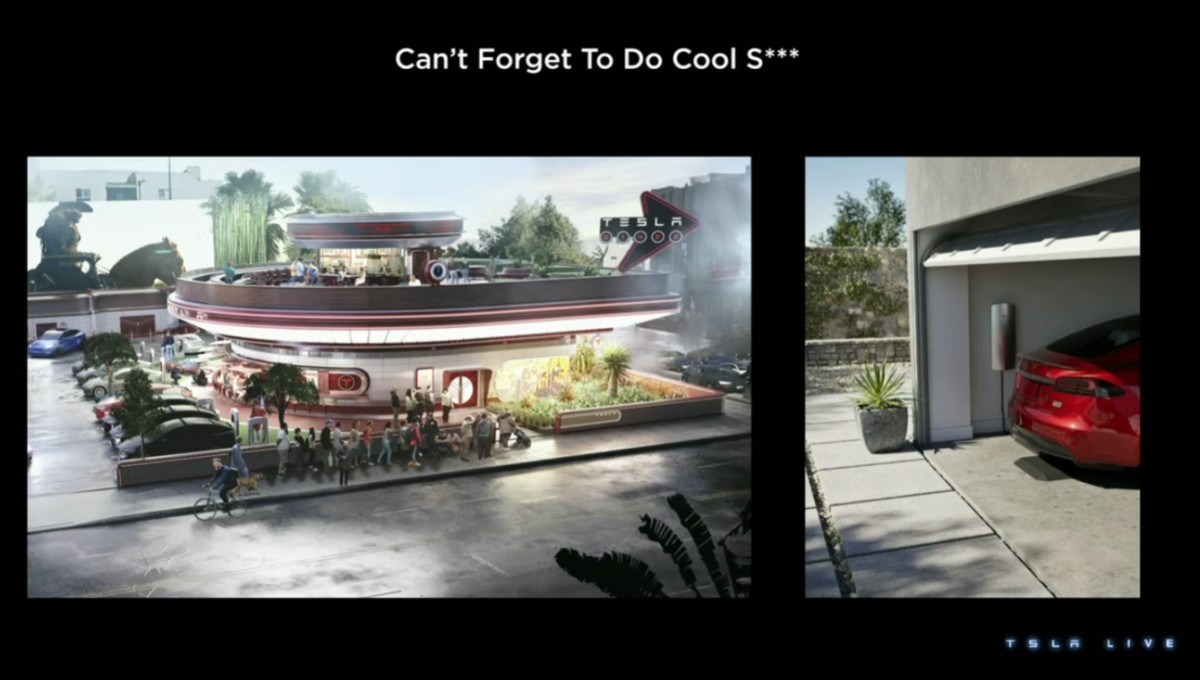
After talking about the number of pallets the Semi moved last year and differences between vehicles with heat pumps and the ones without, the presentation moved on to future plans. Tesla made 4 million cars in total since it entered the business. It took the company 12 years to achieve the first million and only seven months to make the last million of cars.
The next bit may be a nugget that has gone amiss in the barrage of slide. Tesla is expanding its energy storage business exponentially and at unprecedented speed. Its Megapack storage solution is selling like hot cakes and the company already has a bigger solution in the pipeline and it reckons this one will retire fossil fuels. Now, that is a big statement.
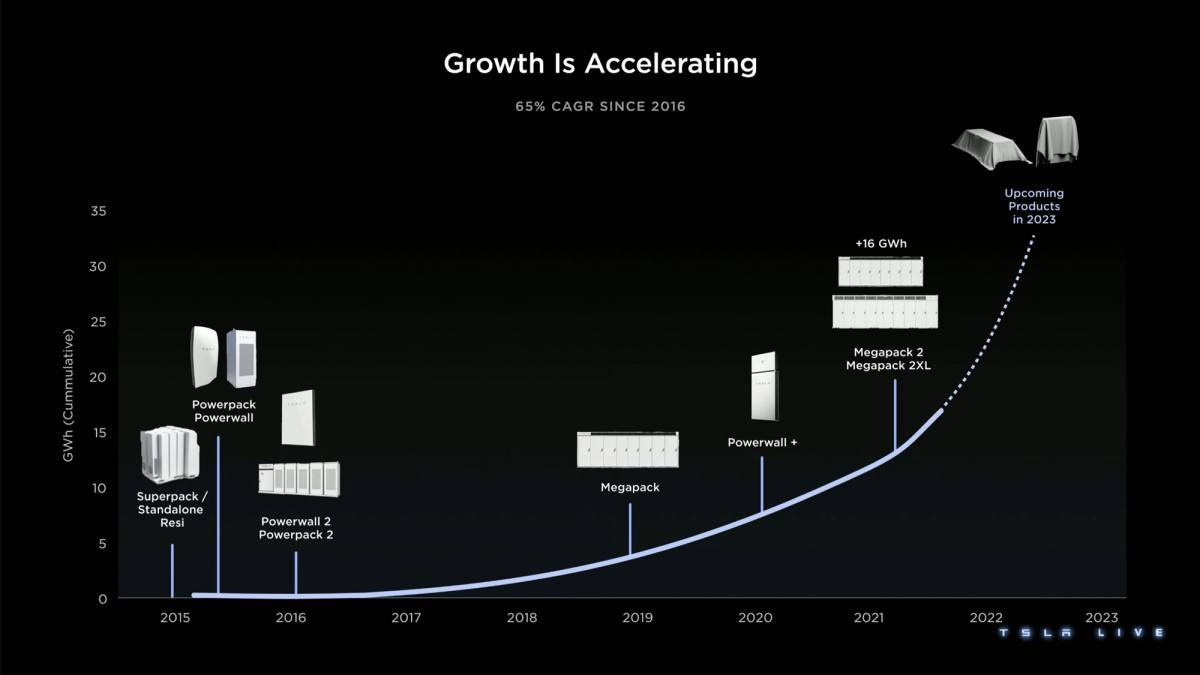
Just before Q&A session Tesla talked about the affordability of its vehicles. According to the company, the 5-year cost of ownership of Tesla Model 3 is already lower than that of owning a Toyota Corolla but the next generation Tesla vehicles will bring that even lower.
The Q&A session kicked off with confirmation that Tesla is going to build the Gigafactory in Mexico and that’s where it will build the next generation EVs. Elon Musk said that the Investor Day is intended to talk about the far future and not the next quarter production goals, which caused even more confusion since that’s exactly what the investors need.
Even more confusion ensued when Musk said that Tesla is not interested in getting into battery material refining, only to go on to explain that the refining capacity is the biggest choking point at the moment and that’s why the company is building its own refinery in Corpus Christi.
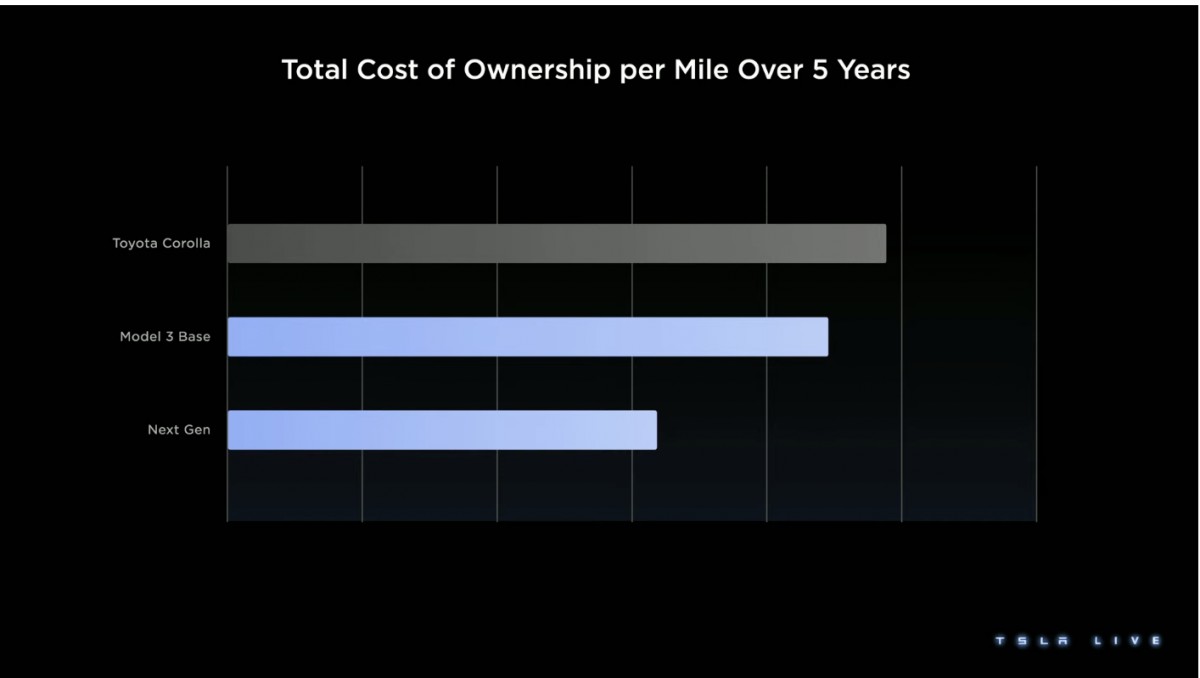
Questions about next generation vehicles and possible timeline for their production went unanswered. The company wants to produce as many as 10 different vehicle models and aims at 20 million units per year once it has all the factories built.
Elon Musk dismissed the idea of electric cars acting as home energy storage simply by saying that once the car is unplugged, the lights go out. Obviously he’d say that, Tesla is selling Powerwall for a reason and Tesla cars will never feature V2L because of that.
According to Tom Zhu, Tesla feels safe in China despite growing political unease. The company believes it provides a lot of jobs in the area and sells enough products to be important and not to be affected by any fallout. Let’s hope he’s right.
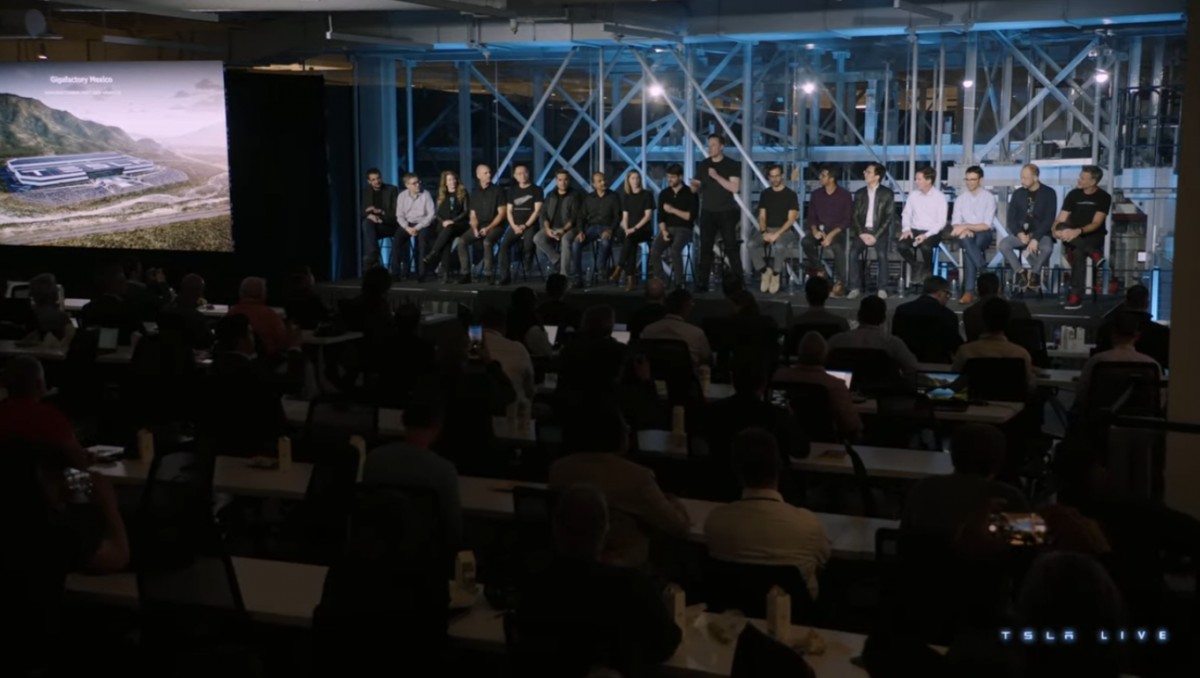
And then Elon Musk went on to describe the demand for Tesla’s electric cars as infinite. He did. If that wasn’t enough, he went on to repeat that with the Megapack, which he claims the demand for is “quasi infinite.” He topped the Investor Day with an advice for everyone to “chill out about AI” and he carried on saying that “it’s quite dangerous technology and I fear I have done something to accelerate it.”
This was Investor Day in a nutshell. To sum it up - we still don’t know when Tesla will introduce next generation EVs but it’ll hold a dedicated product launch when that happens. The Mexico Gigafactory gets a green light, Elon wants more robots but he’s worried the AI will kill us all. On the bright side, he has a plan to wean us off fossil fuels. The plan involves a lot of Megapacks and $10 trillion investment. Tesla cars are moving away from rare earth metals and FSD is nowhere near ready.
Tesla shares are currently trading over 5% lower than yesterday (after hours) and there is a possibility of a sell-off happening over the next few days. The build-up before the Investor Day reached a fever pitch and now investors are feeling a bit hungover but it will pass. Please share your comments with us, let us know what you think - disappointment or not? Is Tesla’s plan to save the world a good idea or should it focus on making cars?
Reader comments
- aasami
- MG9
I understand that the article must be entertaining and to a boring list of dry facts but, ... Elon is investing in AI and wants more robots because he knows it's a threat. That's why you are making weapons when you are afraid of war.





Facebook
Twitter
Instagram
RSS
Settings
Log in I forgot my password Sign up